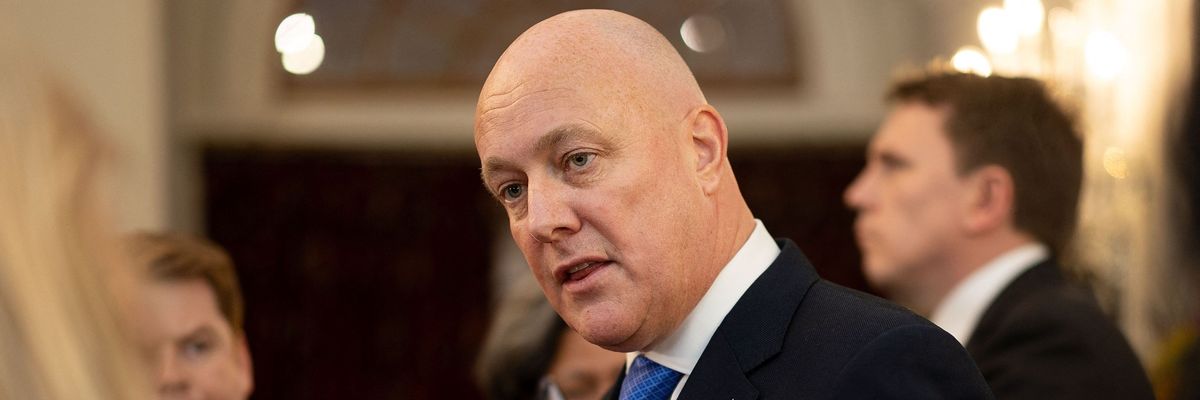The new right-wing government of New Zealand, sworn in on Sunday, surveyed the policies left in place by the Labour Party and announced the reversal of one historic measure that was passed with the goal of preventing thousands of smoking-related deaths every year.
Prime Minister Christopher Luxon, head of the National Party and a former airline executive, announced that the government would scrap the generational smoking ban passed under progressive former Prime Minister Jacinda Ardern in 2021—a law that was praised by public health experts and inspired similar legislation in the United Kingdom.
The law has barred anyone born after 2009 from ever buying cigarettes, with the goal of stopping young people from becoming smokers. It also drastically reduced the legal amount of nicotine in tobacco products and cut the number of stores that are allowed to sell cigarettes from 6,000 nationwide to just 600.
Data modeling showed that the Smokefree Act would save $1.3 billion in health costs over two decades and would reduce mortality rates by 22% for women in New Zealand and by 9% for men.
Currently, about 5,000 people in New Zealand die each year from smoking-related causes.
The possibility of reducing those deaths didn't sway Luxon and his new administration to keep the law in place, with the new prime minister explaining that "coming back to those extra sources of revenue and other savings areas that will help us to fund the tax reduction" that the National Party aims to pass.
Boyd Swinburn, professor of population nutrition and global health at the University of Auckland, said the government is "effectively wanting smokers to continue smoking and more children to start so they can collect more excise tax."
Ben Uffindell, editor of the publication The Civilian, noted that Luxon's goal of increasing revenues and funding tax cuts "doesn't take into account increased cost to the health system."
Public health experts pointed out that the rollback of the law could particularly cost thousands of lives in the Indigenous Maori community.
Health CoalitionAotearoa (HCA), which uses the Maori-language name for New Zealand, said the government's move was "astounding," especially considering that new Minister of Health Dr. Shane Reti had previously stated support for anti-smoking measures.
"This is major loss for public health," said Swinburn, co-chair of the HCA, "and a huge win for the tobacco industry—whose profits will be boosted at the expense of Kiwi lives."

